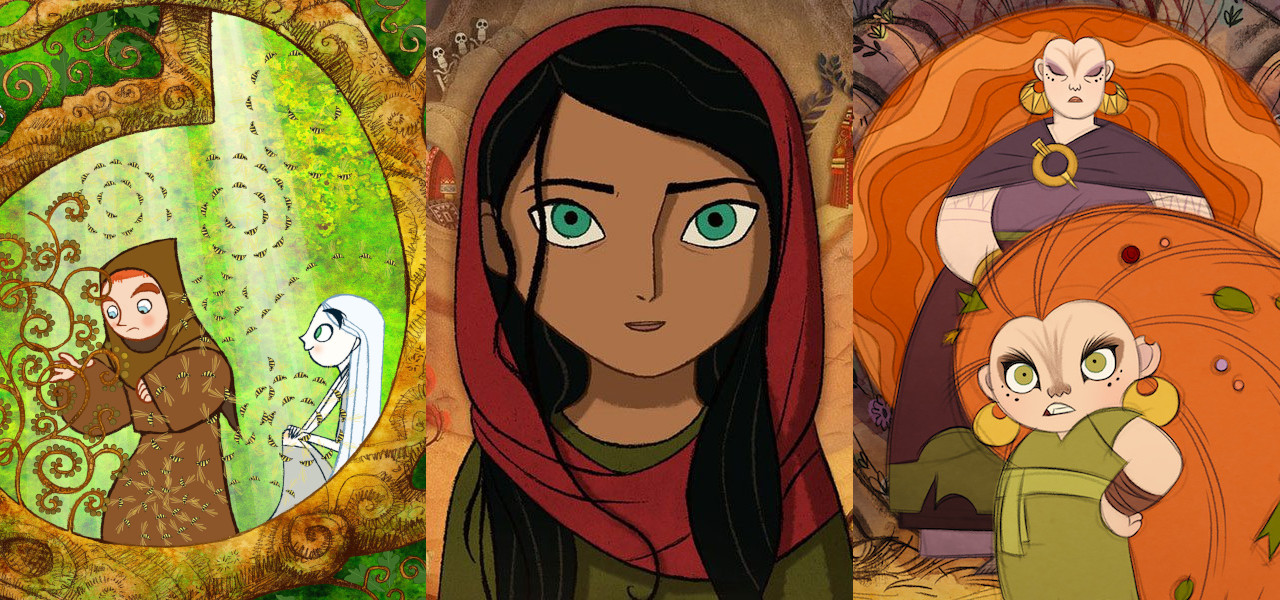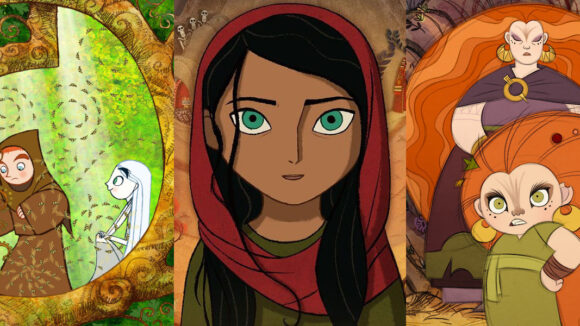

Watch Cartoon Saloon’s Founders Celebrate 25 Years In Anecdote-Filled Q&A
Iconic Irish studio Cartoon Saloon turns 25 this year, and to mark the occasion, founders Tomm Moore, Nora Twomey, and Paul Young recently took part in a British Film Institute discussion.
The full discussion is just over 80 minutes and is tremendous fun for anyone interested in the history of Cartoon Saloon, the state of the European animation scene at any point in the last quarter-century, or independent filmmaking. Below, we’ve highlighted several themes that stood out to us, but we highly recommend watching the discussion when you have free time.
Launching A Studio
Moore, Twomey, and Young all studied together at Ballyfermot College and started creating art together at the time. Moore recalled:
There was a gang of about 10 of us or so who were all in college together, and through Young Irish Filmmakers, we’d organized a small kind of, it was the Millennium Arts and Culture project it was called, and it was funding for artists. It was a little bit more than the dole, but it was a lot for us, and IT was a kind of a way that we could continue what that collaboration that we’d been having in college.
In one of the talks’ most fun historical anecdotes, Moore says that the founding of Cartoon Saloon was indirectly facilitated by the shuttering of one of Ireland’s most iconic animation houses. The original animation desks that the Saloon team used after launch came from Jimmy Murakami’s studio. When selling the audacious young animators the furniture, Murakami insisted to them that 2d animation was dying. “People were laughing at us buying up all this old equipment to keep going with the 2d hand-drawn animation,” says Moore.
Strides Abroad
The studio’s first production was Twomey’s From Darkness, which was screened at key events such as the Galway Film Festival and Annecy. “For us it was really mindblowing that you could make something that a wide audience could see,” Twomey says. “I suppose that short film is where we kind of cut our teeth.”
According to Moore, a key to earning the respect of other Irish labels was when Cartoon Saloon started teaming with producers from other parts of Europe:
It meant a lot that our co-producers in France and Belgium believed, and it actually made people in Ireland take us more seriously that co-producers in other countries were interested in working with us. I think once we found that European co-production network, that way of funding, we discovered a way to make features almost like big long shorts. They weren’t commercial endeavors to sell toys, they were independent kind of art house animated films for families.
Staying Independent
Asked about how the studio managed to keep its independence, Moore explained that because Cartoon Saloon was a 2d studio at a time when cg was the more popular medium, that meant that major commercial opportunities didn’t come around often, allowing the studio to find a niche:
We were keeping going with stuff that wasn’t the mainstream trend. Like even going with hand-drawn animation meant that the number of commercials that we could pitch for was always small, and there was a few other more established studios often going for them.
Twomey said there was also a conscientious effort on Cartoon Saloon’s part to avoid any entities that wanted too much control over how things were run:
We kind of backed away from anybody who felt like they would change the type of films that we worked on and the type of projects that we worked on… It meant we were able to kind of concentrate a bit more on what we were good at without being fearful of, maybe next month will be our last.
Advice to Their Younger Selves
Asked what kind of advice they would offer their younger selves if given the opportunity, Moore said he would convince himself to be more confident:
I’d love to tell the younger Tomm not to doubt so much, you know? And kind of stay the course ’cause it all really paid off. And there were often times when we’d be really worried… One of us was always optimistic enough to encourage the other two to keep going.
Twomey chose to avoid any potential butterfly effects and says that she wouldn’t want to offer any advice to her younger self:
I would not say anything. Especially with Secret of Kells or sitting on the grass outside Ballyfermot school when we were looking at those drawings. I think I would say nothing to that young person because you need a certain amount of naivety and, you know, absolute force of will.
From here, the conversation took on a more chronological and film-specific order as the trio discussed Cartoon Saloon’s catalog and shared anecdotes and memories from the development and production of some of the studio’s most memorable titles.
Pictured at top: The Secret of Kells, The Breadwinner, Wolfwalkers

.png)